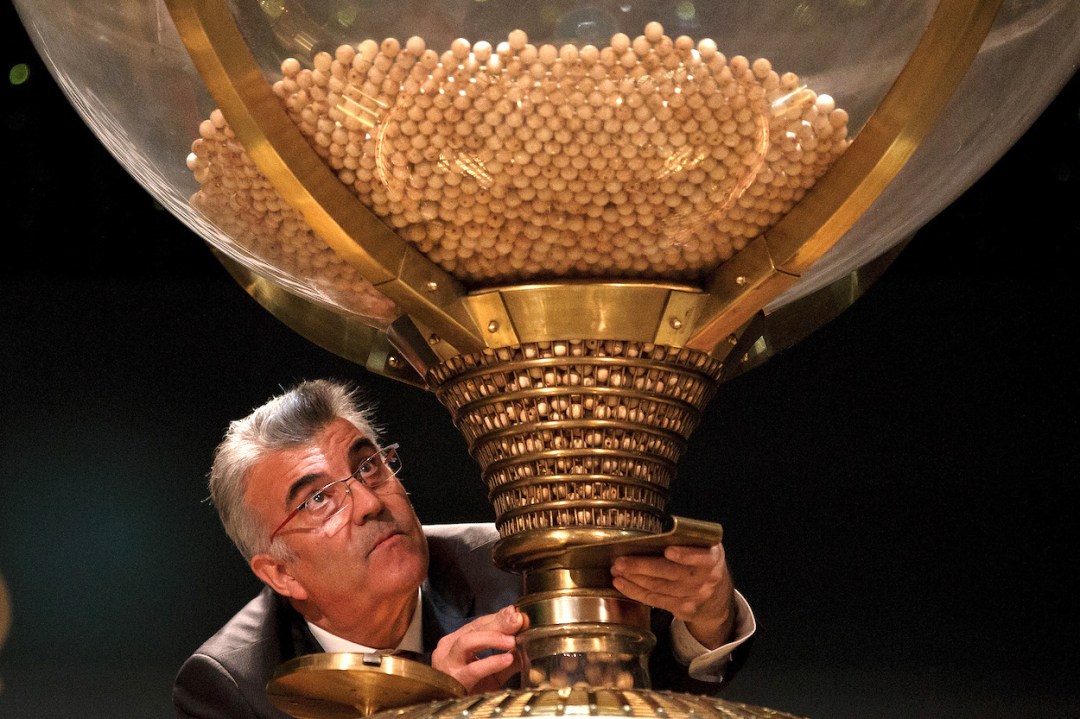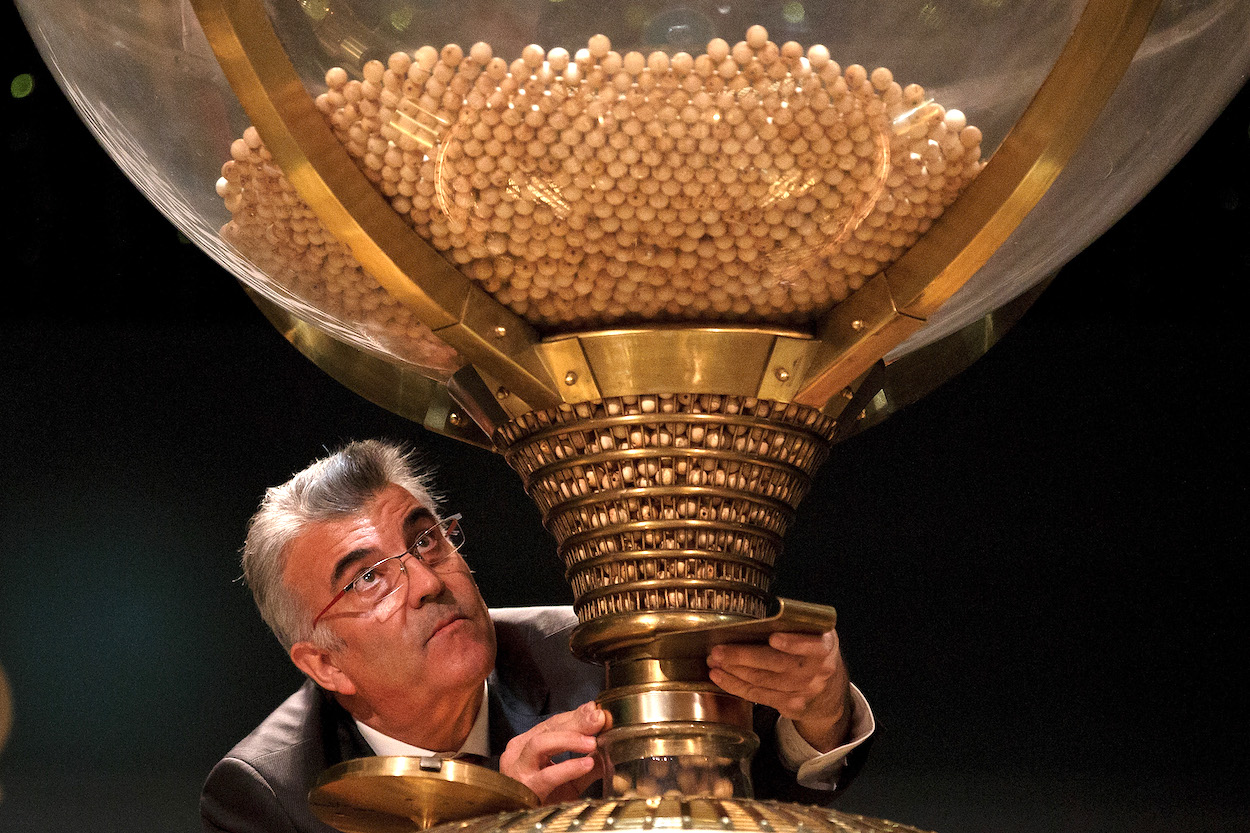Half of Britain is said to have watched The Morecambe and Wise Christmas Show in 1977. Spain’s Christmas lottery, broadcast live to the nation each year on the morning of 22 December and marking for many the start of the holidays, is a similar moment of national unity. Spaniards everywhere down tools, watching with bated breath as lives throughout the country are transformed.
Lottery tickets are untraceable so previous years have seen furtive-looking men carrying suitcases full of banknotes descend on bars, lottery outlets and banks
This year the television cameras and the giant spherical cage containing thousands of numbered wooden balls will be in place as usual. In a ceremony lasting several hours, uniformed children will sing out numbers and their accompanying prizes in a sort of Gregorian plainchant, lending proceedings a slightly religious air. This aura of solemn ritual was momentarily dispelled a few years ago when the wooden ball slipped through the fingers of the little girl about to sing out its number and raced away across the floor: ‘Fuck! I’ve dropped it,’ she informed a startled nation, ‘and now where’s it gone?’
Tickets for El Gordo (‘The fat one’) are on sale at lottery outlets, retailers and online from July each year. Encouraged by heartwarming television advertisements, sales soar as the date of the draw approaches. A whole ticket costs a prohibitive €200 so most people purchase fractions. Noting that it always seems to be tickets sold in other towns which win, many Spaniards buy while they’re away on holiday; it’s a similar logic to running about during an air raid because it’s harder to hit a moving target. But the driving emotion is fear of missing out. What if the number sold in the bar at your holiday resort gets a big prize? What if the workplace ticket wins and your colleagues get rich but you don’t?
El Gordo is over two hundred years old so traditions and superstitions abound. One country inn in Catalonia has been buying the same number since 1903 – no luck so far. A few years ago villagers in Utrera, in the south of Spain, bought the five-digit number which is also the local postal code. It won fourth prize, some €26 million.
Lottery tickets are untraceable so previous years have seen furtive-looking men carrying suitcases full of banknotes descend on bars, lottery outlets and banks, searching for the winners before they cash their tickets. Acting on behalf of wealthy clients, these money launderers sometimes offer 20 per cent more than the tickets are worth. A few years ago it transpired that one politician had just won for the fourth time in as many years.
Meanwhile those of us who never win find some consolation in awarding booby prizes for the most irritating comment from a winner. First prize last year went to the gentleman who said that if he’d known his number was going to win he would have bought more fractions. But the all-time best was the lady who, having won a fortune, explained that she’d bought a ticket with the number 48 in it because ‘My birthday is the 7 July. That’s the seventh day of the seventh month, you see, and seven times seven is 48.’







Comments